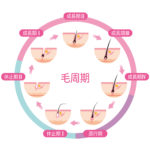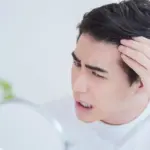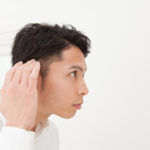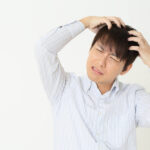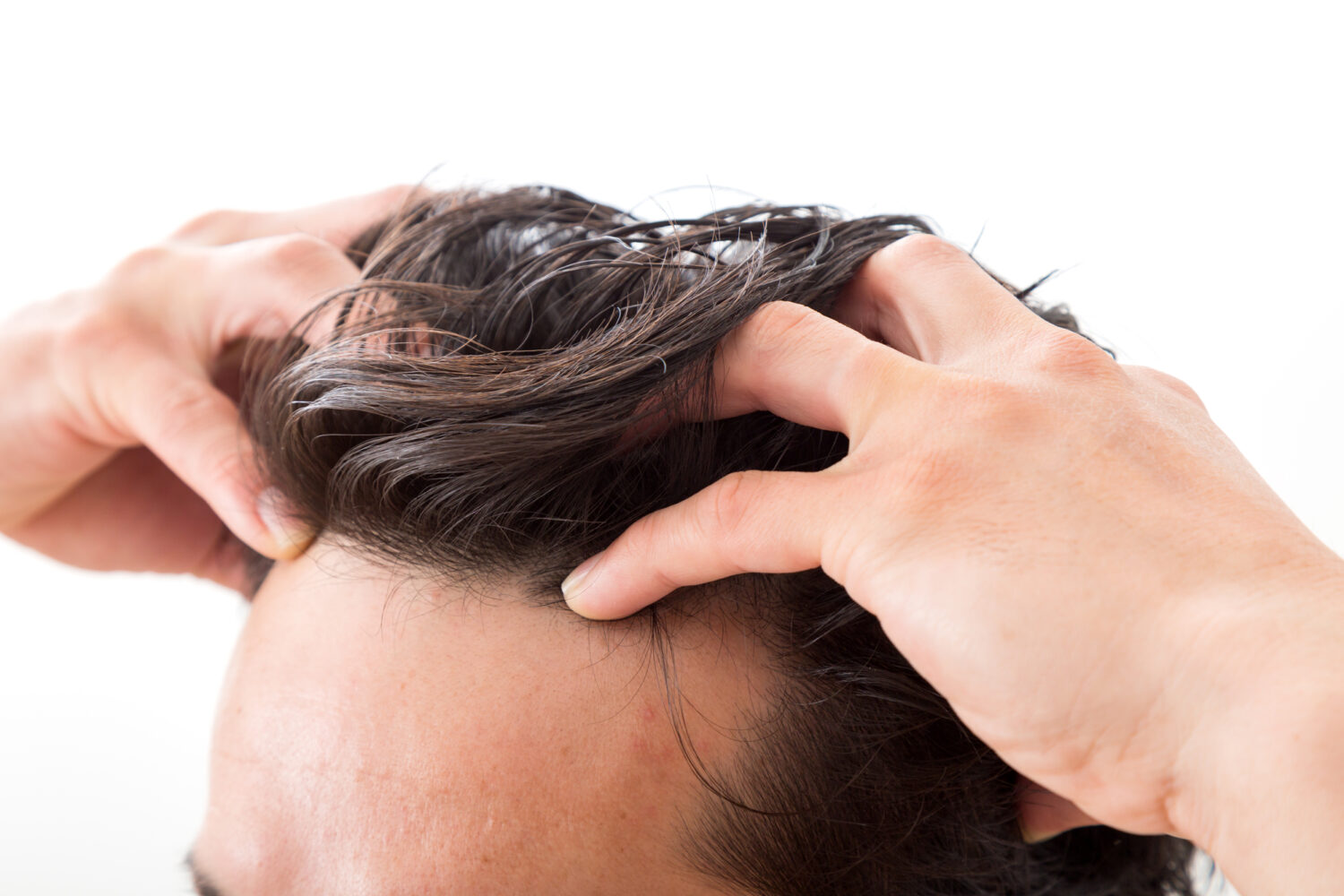
Losing a lot of hair? A complete explanation of the causes of hair loss and how to prevent it! When is the best time to see a doctor? I feel that the number of hairs falling out when I wash my head is increasing… Is this the beginning of thinning hair? Is this the beginning of thinning hair?
Many of you may have this kind of concern. Hair loss is normal, but when the amount of hair loss is large, it can be worrisome.
There seems to be some misinformation that “washing your hair every day causes hair loss” or “using too many hair care products can cause hair loss,” but daily use of hair care products does, in fact, contribute to the health of your hair and scalp.
This article explains the causes of hair loss, measures you can take at home, and treatments at medical institutions. Please read to the end to review the condition of your hair and scalp and take appropriate care of them.
Osaka AGA Kato Clinic is capable of treating all kinds of symptoms related to hair. Please contact us for a free consultation to discuss treatment for alopecia areata and post corona alopecia. Make an appointment on Line.
This article primarily describes hair loss symptoms in men. Women’s hair loss symptoms are discussed in more detail in this article.
この記事で説明する内容は?
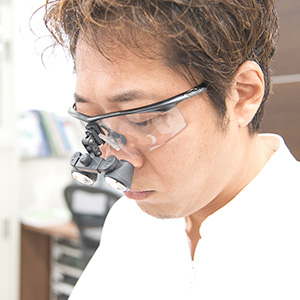
Kentaro Kato, Hospital director of Osaka AGA Kato Clinic group, specializing in comprehensive hair treatment. We specialize in cutting-edge treatments for a variety of clinically proven effective treatments for thinning hair and hair loss. Graduated from Faculty of Medicine, Kinki University in 2001 Worked at plastic surgery of Osaka Medical and Pharmaceutical University Hospital as an anesthesiologist from 2001 to 2005. Worked as a head of plastic surgery at major cosmetic surgery, Hair Transplant Department from 2005 to 2011. Opened Osaka AGA Kato Clinic in 2011. Japan Society of Plastic and Reconstructive Surgery, Regular Member. The Japanese Society for Regenerative Medicine, Regular Member. World Academy of Anti-Aging & Regenerative Medicine, Regular Member.
Why does Hair fall out?
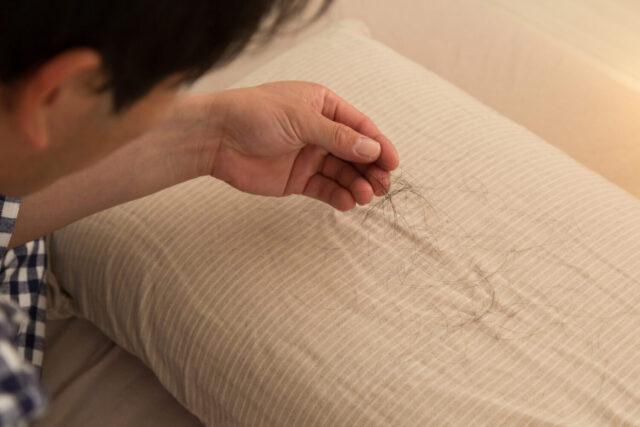
Hair has a series of processes from the time it grows until it naturally falls out, or the growth cycle. This growth cycle consists of three phases: growth phase, regression phase, and resting phase.
Each strand of hair repeats this cycle to maintain its hair. During the growth phase, hair grows about 0.3 mm every day, and after about two months, new hair grows and old hair falls out.
The following article explains how to understand the hair cycle and use it for hair growth.
Natural process of hair loss
It is part of this growth cycle that some hairs fall out each day. Generally, in a healthy state, about 50 to 100 hairs fall out per day.
This is a natural process to make room for new hair growth. However, if this number increases significantly, you may notice an increase in hair loss. If this is the case, there may be a specific cause.
What causes “Increased” hair loss?
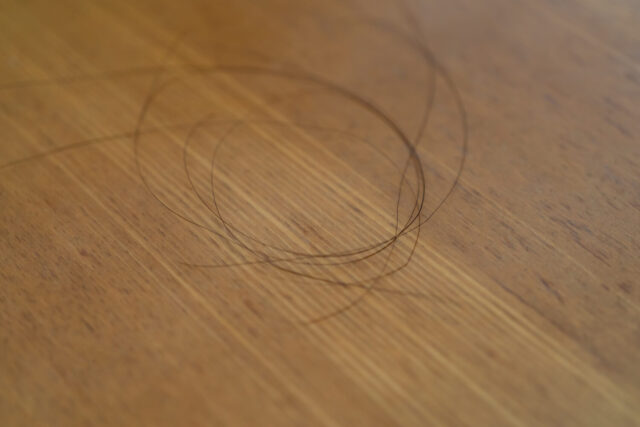
Increased hair loss may be caused by;
- Male pattern boldness (AGA)
- Genetic factors
- Meals
- Lack of sleep
- Lack of exercise
- Hair loss due to illness
- Drug-induced hair loss
Each will be explained in detail.
Male pattern boldness (AGA)
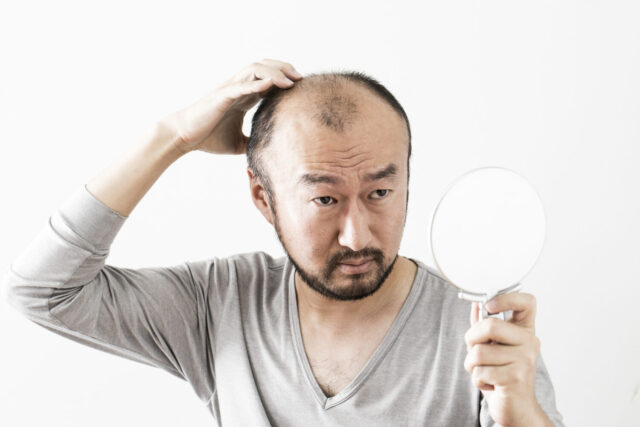
Male pattern boldness (AGA) is a progressive form of alopecia unique to adult males. It occurs when male hormones (especially dihydrotestosterone) affect hair follicles and disrupt the hair growth cycle.
Male pattern boldness (AGA) is related to genetic factors, but it is also easily influenced by lifestyle and diet.
The characteristics of hair loss due to Male pattern boldness (AGA) are described in detail in the following article.
Genetic factors
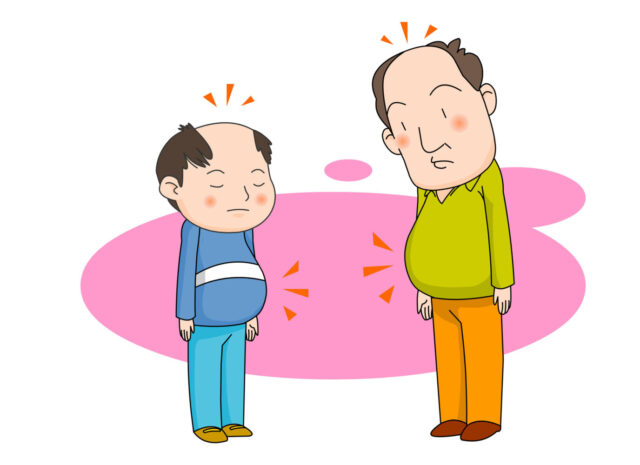
Genetic factors are said to contribute to hair loss. Genes are known to influence hair characteristics, growth cycles, and the likelihood of alopecia.
If a parent or close relative suffers from thinning hair or hair loss, they are more likely to have the same problem. Therefore, if you have a family member with thinning hair, it is important to consider preventive measures as early as possible; a genetic test can tell fairly accurately if you have a tendency toward Male pattern boldness (AGA).
Meals

Nutritional deficiencies and unbalanced diets can contribute to hair loss. Keratin, the main component of hair, is made from protein.
If protein is lacking, hair production can stagnate, leading to hair loss. Insufficiency of vitamins and minerals important for hair growth can also cause hair loss.
Lack of sleep
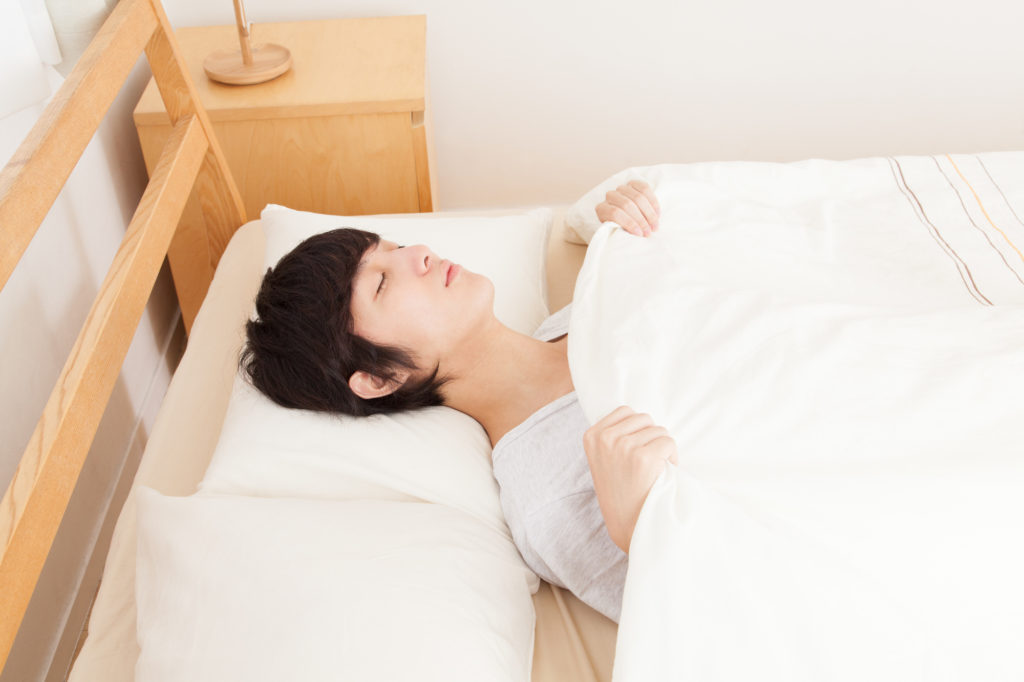
Sleep is an important time for the body to recover. Hair growth, in particular, requires a healthy hormonal balance.
Lack of sleep can disrupt that balance and cause hair loss. One reason for the need for deep sleep is that it coincides with the time of day when growth hormones are secreted.
Lack of exercise

Lack of exercise can cause poor blood circulation. Poor blood circulation makes it difficult for necessary nutrients to reach the scalp, causing hair loss.
Adequate exercise improves blood circulation and allows nutrients to reach the scalp, thereby maintaining the health of the hair.
Hair loss due to illness
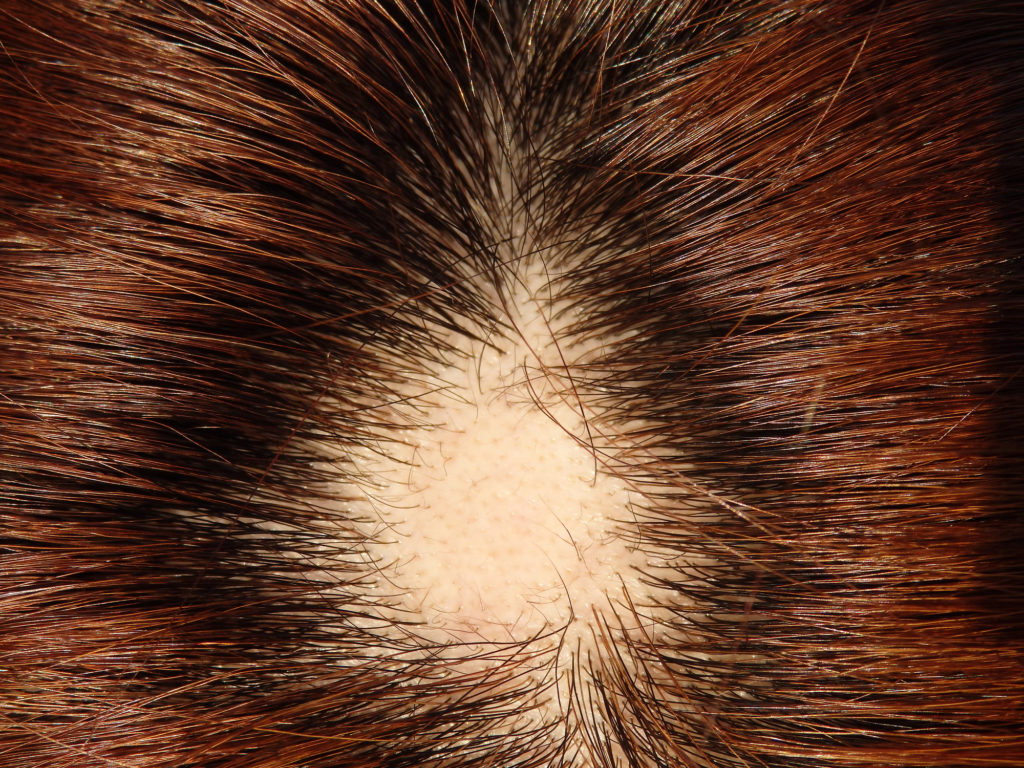
Certain diseases and disorders can cause hair loss. The following diseases may cause hair loss;
- Alopecia areata
- Diseases of the thyroid gland
- Iron-deficiency anemia
- Seborrheic eczema
Drug-induced hair loss

Certain drugs and treatments can also cause hair loss. In particular, powerful drugs such as anticancer drugs can cause hair loss by inhibiting cell division in the body, thus stopping hair growth.
Medications for high blood pressure, antidepressants, and anticoagulants may also cause hair loss in rare cases.
What can I do at home to Prevent and Control hair loss?
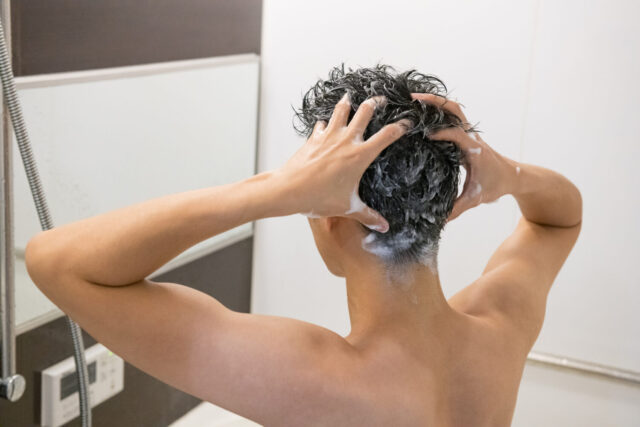
Here are some simple measures you can take at home to combat and prevent hair loss.
Proper hair care
Proper hair care is a fundamental step in preventing hair loss. Hair is damaged by friction and heat.
Therefore, avoid frequent use of hair styling tools (such as straightening and curling irons) and excessive use of strong hair sprays and gels. Frequent use of these will dry out and damage your hair.
Also, when washing your hair, do so gently. Scrubbing the scalp too hard can put unnecessary stress on the hair and scalp and cause hair loss.
Nutrient requirements
Diet has a significant impact on hair health. Nutrients necessary for hair health include;
| Nutrients | Effectiveness |
|---|---|
| Protein | Keratin, the main component of hair, is made of protein. |
| Zinc (Zn) | Important for efficient use of protein, the main component of hair, in the body. |
| Vitamin A | Promotes hair health by stimulating metabolism. |
| Vitamin C | Improved scalp environment. |
| Iron | Essential for making blood that carries oxygen and nutrients to the hair and scalp. |
Stress Management
Stress can contribute to hair loss. Stress can disrupt the body’s hormonal balance and affect the hair growth cycle.
Managing stress is important not only for physical and mental health, but also for preventing hair loss. Take the following time in your life to relieve stress.
- Relaxation (meditation, deep breathing, etc.)
- Moderate exercise
- Adequate sleep
- Hobby
Effective shampoo for hair loss
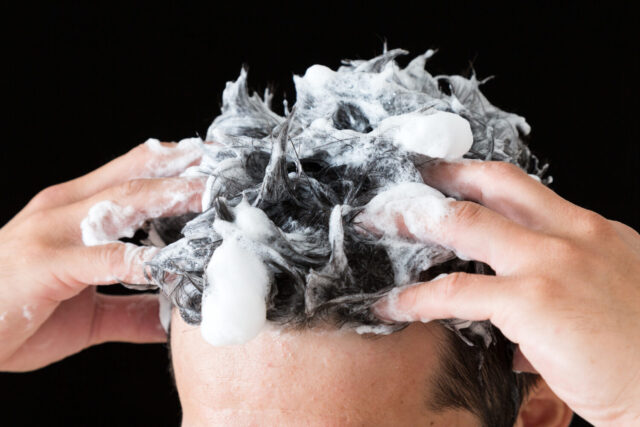
Ingredients are important when choosing a shampoo to prevent hair loss. Shampoo ingredients that help prevent hair loss include;
- Biotin (Vitamin B7)
It is involved in amino acid metabolism and helps keep hair healthy. - Panthenol (provitamin B5)
It is an ingredient that promotes hair production and stimulates metabolism. - Amino acid-based cleansing ingredients: Gentle on the skin and leave hair and scalp reasonably clean.
Shampoo selection depends on the condition of the scalp. For example, if the scalp is dry, a shampoo rich in moisturizing ingredients is appropriate.
Also, if you have an oily scalp, a shampoo with high cleaning power that can remove excess sebum is recommended. Maintaining a healthy scalp environment is important for hair health.
When choosing a shampoo, it is also important to avoid irritating ingredients (e.g., sulfates). These ingredients can excessively dry the scalp and cause irritation and itching.
Use of shampoos containing irritating ingredients can exacerbate hair loss and should be avoided.
Scalp massage to prevent hair loss
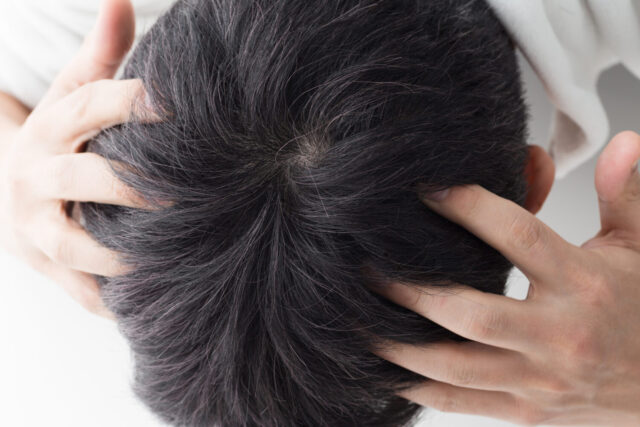
Scalp massage is one of the most effective ways to combat hair loss. Scalp massage stimulates blood circulation in the scalp and improves the supply of nutrients to the hair matrix cells.
Scalp massage supports hair growth and maintains a healthy scalp environment.
Massage also helps to soothe scalp conditions. A stiff scalp can impede hair growth.
Scalp massage can help ease a stiff scalp and promote hair growth.
Scalp massage at home
Scalp massage can be easily performed at home. Here are some basic scalp massage techniques.
- Warm
Warm your scalp before beginning the massage. Warm a towel and apply it to the scalp or take a warm shower to stimulate blood flow. - Massage with the belly of the finger
Massage softly with your fingers so as not to damage the scalp. Gently move the entire scalp in a circular motion, proceeding from the front of the head to the back. - The massage proceeds from the top of the ear downwards.
Regular care is required to maximize the benefits of scalp massage. Ideally, it should be performed for several minutes daily.
Scalp massage also has a relaxing effect and contributes to stress reduction. This also helps prevent stress-induced hair loss.
When to see a Doctor for hair loss?

It is important to be aware of any increase in daily hair loss. And in addition to hair loss, watch carefully for other scalp problems. The following symptoms are important guidelines
- It is natural to lose about 50-100 hairs a day, but more than that could be a problem.
- Scalp is reddened.
- Itching and dandruff in large quantities.
- The texture of my hair has changed.
- Hair bundles become thinner.
If you experience any of the above symptoms, we recommend that you consult a specialist instead of trying to solve the problem on your own. A professional diagnosis will help clarify the cause of your hair loss and find the best treatment.
Some causes of hair loss, such as male pattern boldness (AGA), can be slowed down by early treatment. Early detection and early action are therefore key to solving hair loss problems.
The following article explains in detail why we recommend that people in their 20s especially visit a doctor as early as possible.
Hair loss treatment at medical institutions
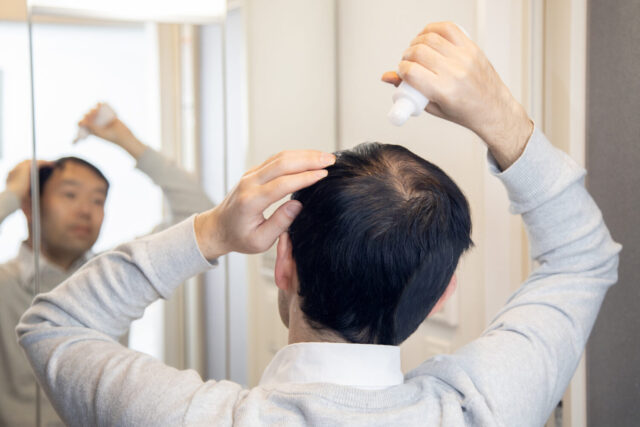
Hair loss treatments provided by medical institutions include the following;
| Treatment | Description |
|---|---|
| Originally developed as a treatment for high blood pressure, it is now also used to treat hair loss, as it was found to promote hair growth as a side effect of the drug. | |
| It is widely used as a treatment for male pattern boldness (Male pattern boldness (AGA) medications. This drug prevents testosterone from being converted into dihydrotestosterone (DHT), which causes hair loss. | |
| This is a treatment in which hair is harvested from a healthy part of one’s scalp and transplanted to the area of hair loss. This is used when hair loss has progressed and natural hair growth is difficult. |
All treatments have different effects and side effects, depending on the individual situation, cause, and extent. When choosing a treatment, discuss your options with your health care professional and choose the treatment that is best for you.
Conclusion
Hair loss is a natural phenomenon that we all experience in our daily lives. However, excessive hair loss is related to a variety of causes, including lifestyle, nutritional status, stress, and illness.
First, try to combat hair loss at home by practicing proper hair and scalp care, eating a well-balanced diet, and managing stress. Using shampoos that are effective against hair loss and massaging the scalp are also effective in preventing hair loss.
If you still feel that your hair loss is progressing, it is important to seek medical attention as soon as possible.
Review your lifestyle and hair care now, and try to prevent and prevent hair loss. If you are still concerned, we strongly recommend that you consult a specialized medical institution.
Start your thinning hair treatment at Osaka Male pattern boldness (AGA) Kato Clinic. With more than 300 visits per month, we offer free counseling to find the right treatment for you. Consultation on Line: click here.



